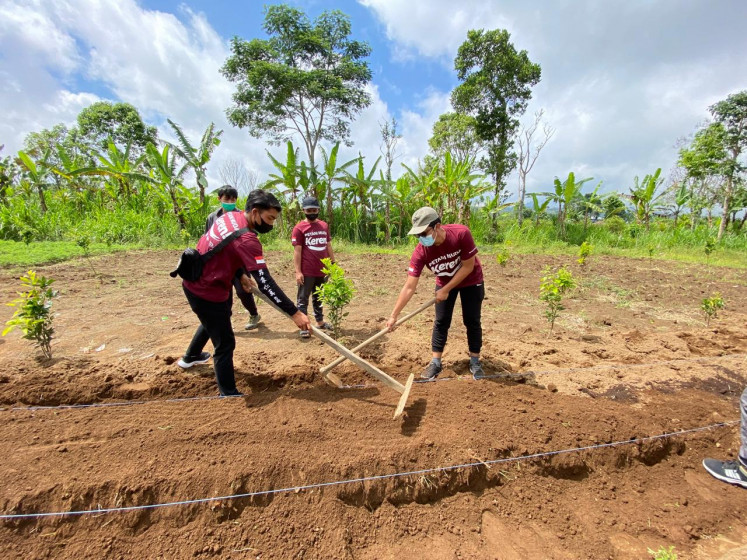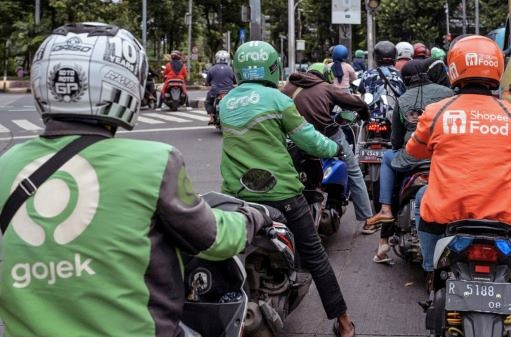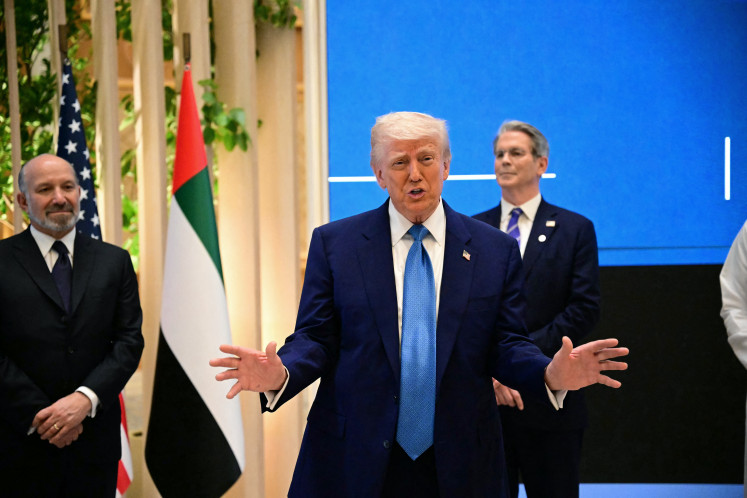Popular Reads
Top Results
Can't find what you're looking for?
View all search resultsPopular Reads
Top Results
Can't find what you're looking for?
View all search resultsMSMEs play major role in global economic recovery
Change text size
Gift Premium Articles
to Anyone
M
icro, small and medium enterprises (MSMEs) make up 99 percent of all Indonesian businesses, accounting for more than 60 percent of the GDP and investment in the country.
With 97 percent of all national employment coming from MSMEs, their continued presence and survival is vital for Indonesia’s economy, especially as the country transitions from the pandemic.
However, the pandemic has had its challenges. Many MSMEs struggled with declining revenues, especially those that had not digitized as consumer spending shifted online amid social restrictions.
Speaking at The Jakarta Post’s JakPost Spotlight webinar on Thursday, Finance Minister Sri Mulyani Indrawati noted that unlike the 1997 and 2008 financial crises, which mainly affected large corporations, the COVID-19 pandemic hit MSMEs particularly hard as physical activities were limited so as to prevent further transmission of the virus.
“MSMEs, especially in the informal sector, had to have a physical presence, as it was their source of income and economic activity. That is why at the very beginning of the pandemic, the Indonesian government designed the COVID-19 Handling and National Economic Recovery (PEN) program focusing on two very important aspects: how to best support MSMEs and providing a social safety net for the most vulnerable households,” she said.
According to Sri Mulyani, the government carried out a series of interventions to protect MSMEs during the pandemic, such as by providing direct grants, loan restructuring and subsidies on interest payments.
At the same time, trouble is also looming on the horizon, with rising energy prices and inflation compounded by supply chain issues exacerbated by current geopolitical situations.
While Sri Mulyani acknowledged that food and energy price fluctuations would greatly affect the economy, she noted that Indonesia was experiencing a windfall revenue for its national budget, which allowed the government to strengthen the national economic recovery process while also making sure that the national budget was kept healthy and sustainable.
“We decided to use some of this windfall revenue to provide cushioning for the people, including MSMEs, from the shock of energy prices; food prices, including cooking oil, which is very important for MSMEs in the culinary sector; as well as providing a subsidy on cooking gas. These are all very important for us to be able to provide a space for the resiliency of the MSME sector.”
Economist Lili Yan Ing, Southeast Asia lead advisor at ERIA, pointed to a 2020 survey by Statistics Indonesia (BPS) that found that 84 percent of MSMEs had reported an income loss, while 36 percent had had to close their business.
“I think the Indonesian government is relatively very responsive in managing the impact of the crisis, as Rp 112 trillion was allocated to interest and tax rate subsidies in 2020. The following year, Rp 187 trillion was reserved for MSMEs and corporate financing. On the demand side, the fiscal stimulus has been focused on social assistance for low income families.
“But the key in Indonesia and other countries is the implementation. The government is responsible for ensuring that the allocated funds and social assistance programs are well distributed and reach the targeted beneficiaries,” she said.
Juan José Daboub, cochair of the B20 Trade & Investment Task Force, noted that in addition to inclusive policymaking, another important key to MSME development was collaboration among stakeholders, with both government and business players playing a role.
“For example, MSMEs need support in the form of suitable policies and incentives that are dedicated to them, including defining a clear definition of MSMEs to ensure that policies or incentives intended for MSMEs are not misused by large corporations,” he said.
Daboub added that for business players, the Trade & Investment B20 task force was currently working on joint commitments and actionable initiatives to support the Group of 20 in empowering MSMEs, dubbed the B20 Inclusive Closed Loop Pledge.
“It will be the forum’s legacy in supporting the Indonesian G20 presidency’s target to encourage digital transformation and expand MSMEs’ access as well as their competitiveness.”
Meanwhile, TaniHub Group CEO Pamitra Wineka highlighted the importance of digitalization for MSMEs. TaniHub’s own business model aggregates farmers seeking to sell their harvest and connect them to B2B customers, such as the hotel and restaurant industries.
“During the pandemic, as the government was implementing [social restrictions], the first segment that was hit hard was our B2B customers. Demand dropped, while traditional markets were also closed,” he recalled.
As a result, TaniHub shifted to a B2C model as members of the public sheltering at home began ordering their groceries and necessities online. At the same time, farmers who were content to sell to middlemen and at markets became aware of the importance of digitalization.
“There was a high adoption of technology for sure, along with the exploration of new ways of selling and tapping into the market,” he said.










